In pictures: Tanzanian acrobat school
- Published
In Tanzania, it is not unusual to see children and adults performing acrobatic stunts in the streets. But where does the country's reputation as the home of Africa's best acrobats come from? The BBC's Rafael Estefania went to Dar es Salam to find out.
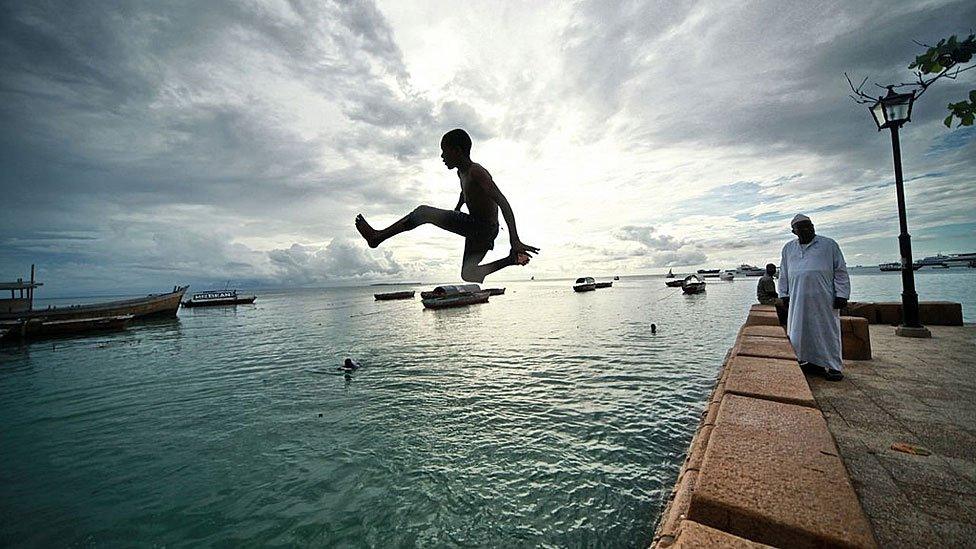
When Zimbabwean circus performer Winston Ruddel started a quest for circus talent for his world-renowned Mama Africa show, his first stop was the Tanzanian city, Dar es Salam. It was here that he later founded Mama Africa's acrobat school.
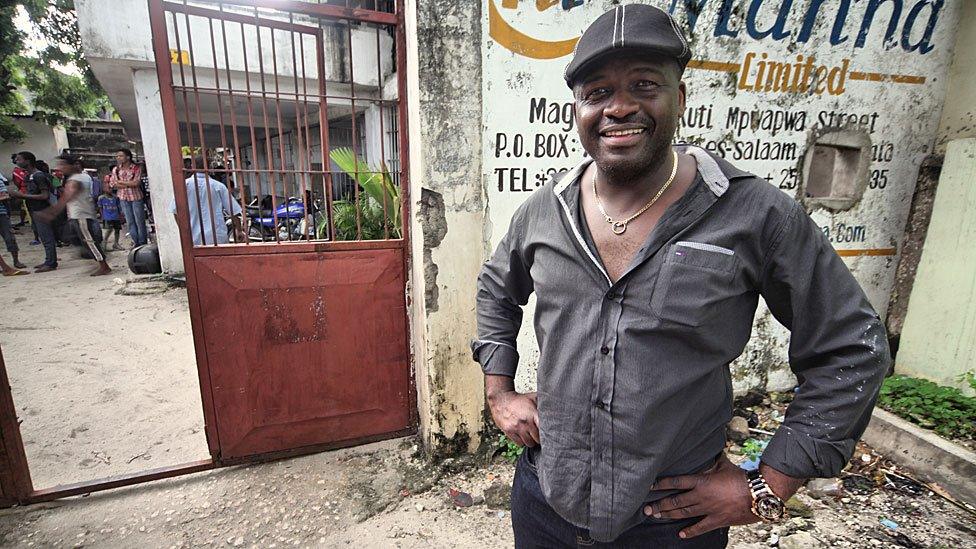
"It all started as a mistake," says Mr Ruddel. "I was offered a contract in Las Vegas for a circus show so I came to Tanzania to find youngsters with some good basics of acrobatics. We put a show together, but the Americans didn't like the boys. I had already promised them a contract so I started to look for jobs for them. In the end, we got so much work that I had to open an acrobats' school to meet the demand. It went from a small mistake to a big success."
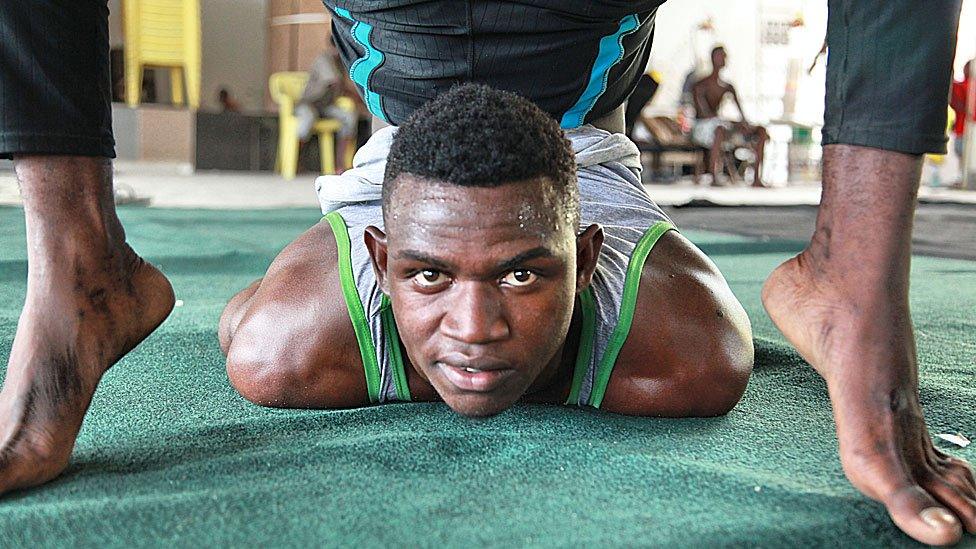
One of those who has trained at the school, Selemani Mohamedi Nomondo, says: "I started doing contortion when I was three years old. If you start early enough your body adapts and your bones almost become flexible. It is not painful at all for me now. To be honest, it looks harder than it really is."
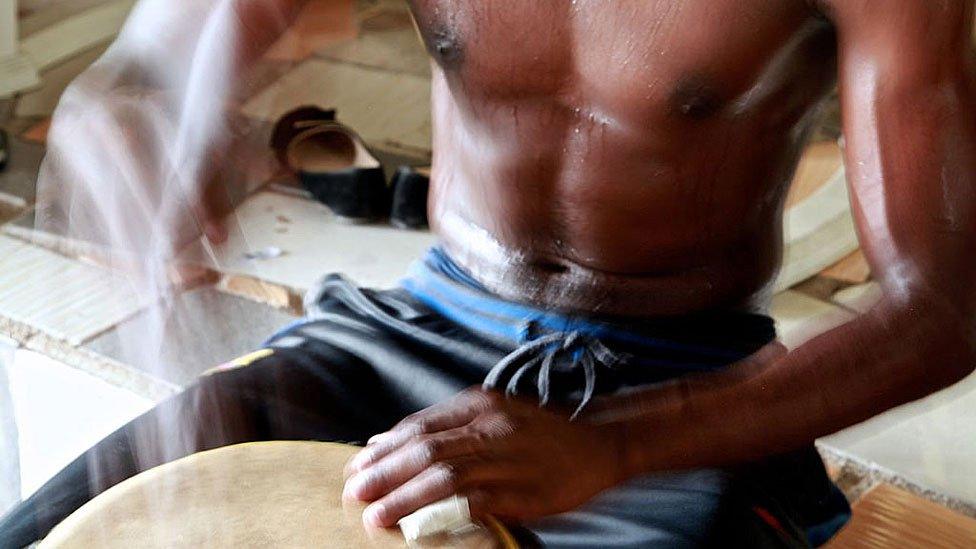
The Mama Africa show uses music as an integral part of performance and it is also used at the school during training. The drum is the heart of this, keeping acrobats' spirits high and being the base for all the choreography put together by the dancing group.
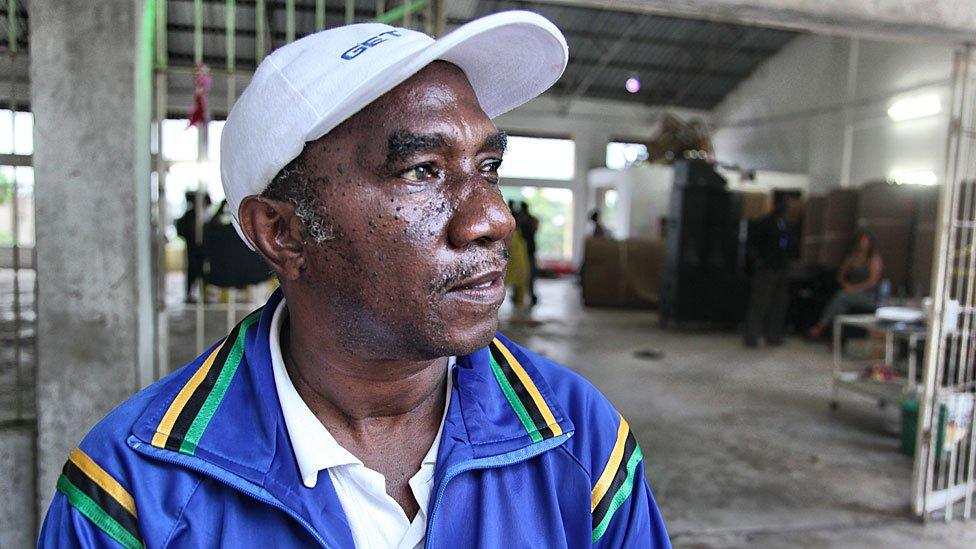
Rajab Zubwa says he was Tanzania's first acrobat. "I studied acrobatics for four years in China in the 1960s. Tanzania and China were close politically then so both governments created sport exchanges programmes," he says. "I benefited a lot from the great Chinese circus school and when I returned, I became a teacher of acrobats."
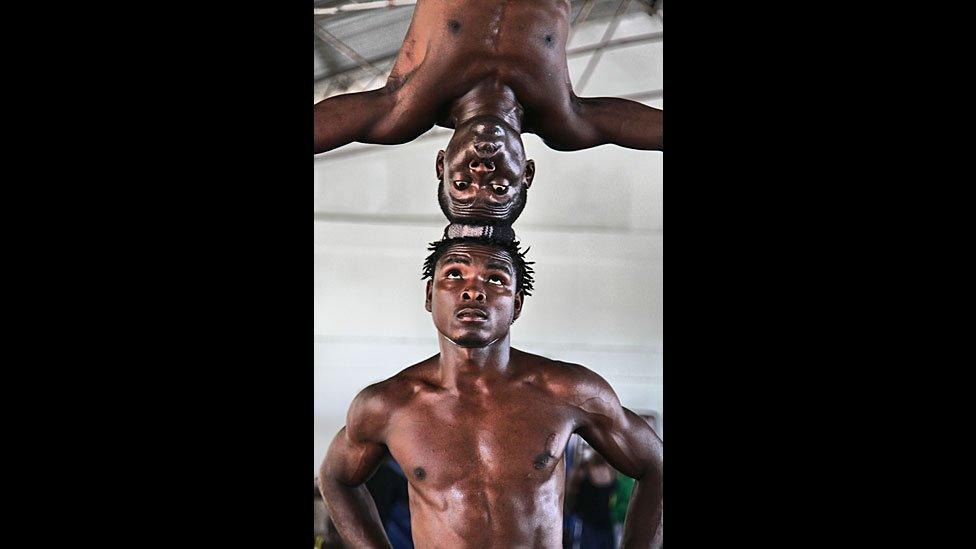
The Mama Africa show has now been performed in venues on five continents, including New York's Broadway. There are often several productions running at the same time, but it is not easy to be part of the show and only the most skilful graduates of the school make it onto the international stage.
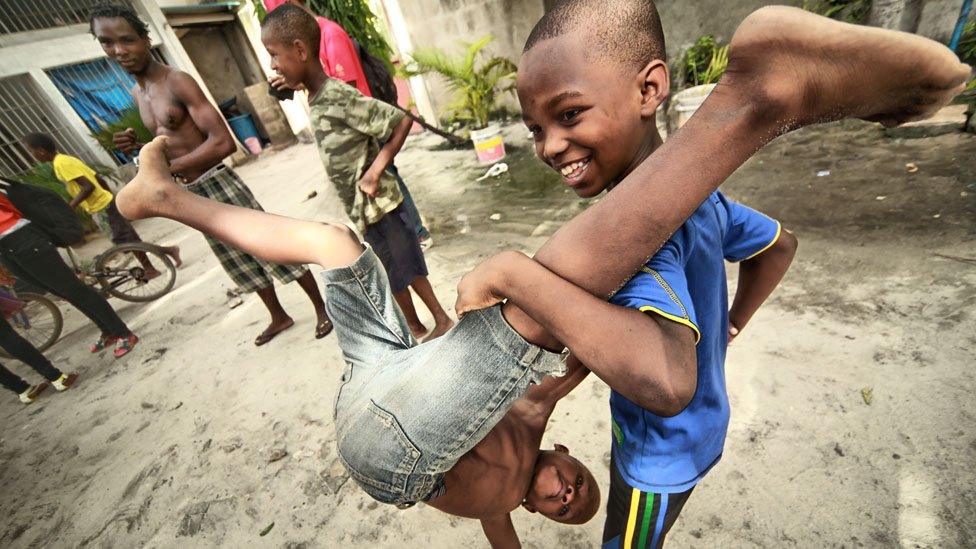
Children are welcome at the Mama Africa school during weekends and school holidays. Teachers say the combination of skill, discipline, fun and danger make circus training an appealing activity for children.
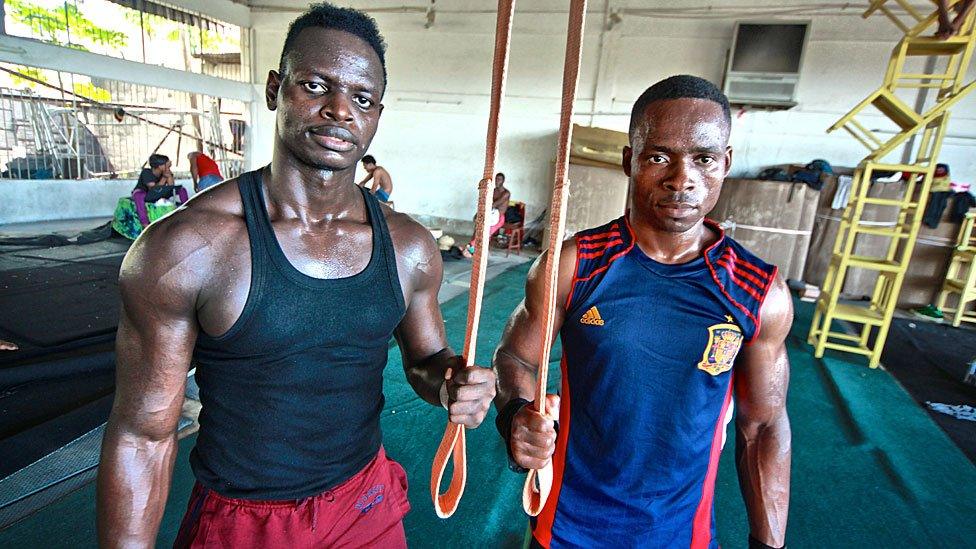
Since the Mama Africa school opened in 2003 more than 300 students have graduated. Many have ended up working for the show's various productions. Others have joined circus companies around the world.
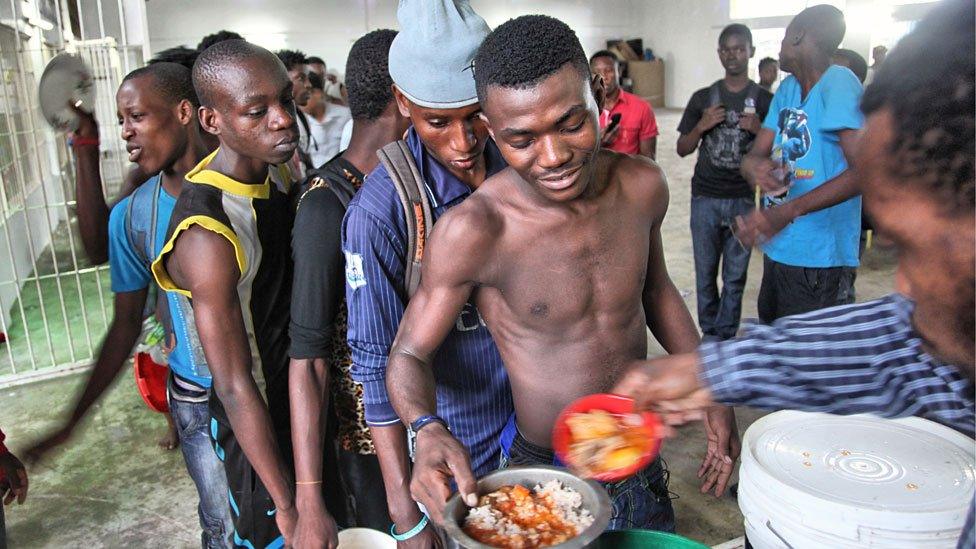
Conditions at the school are very basic. In spite of the acrobatic tradition in Tanzania, circus school programmes are not sponsored either by government or the private sector. Mr Ruddel's school is in the Magomeni neighbourhood of Dar es Salam, one of the poorest parts of the city. At the end of a hard day's training, the students get a plate of food.
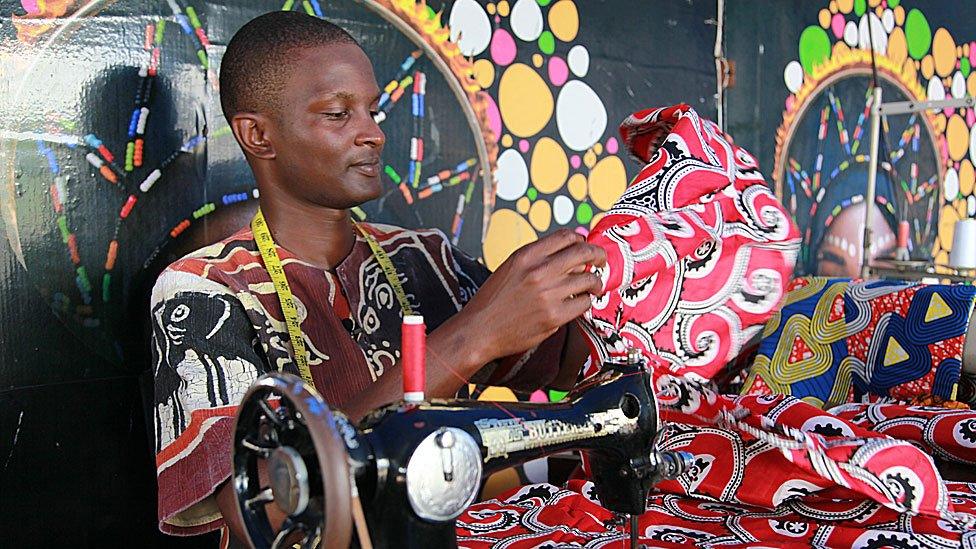
"My name is Tumaini and I am Mama Africa's tailor. There is not a great tradition of big costumes in African shows as there is in Europe. Here we try to put real African dresses on the stage, using the colourful fabrics people wear in the street. This is real Africa not an unimaginable Africa."
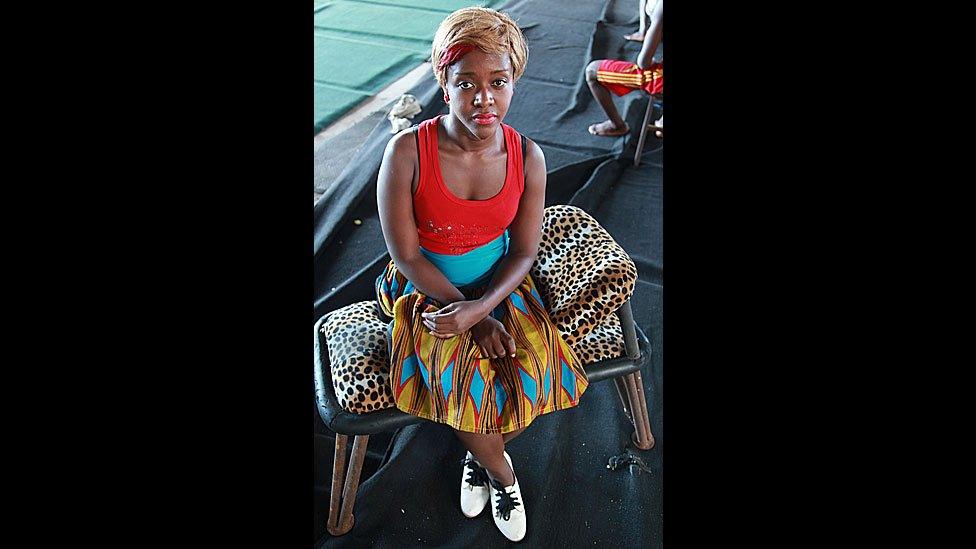
"My name is Deborah Dixon and I am one of the few girl contortionists in the school. Most girls prefer to do the hula hoop or the dance routines because for some traditional families it is not right for their daughters to be spreading their legs and rolling on the floor. For me contortion is an art."

Ally Kibwana Ally says: "For me, getting involved with Mama Africa meant that I was able to make a living out of my skills. I have toured the world and learned a lot from my experiences abroad. I am now passing that knowledge to other students so they can have the same chances I had."
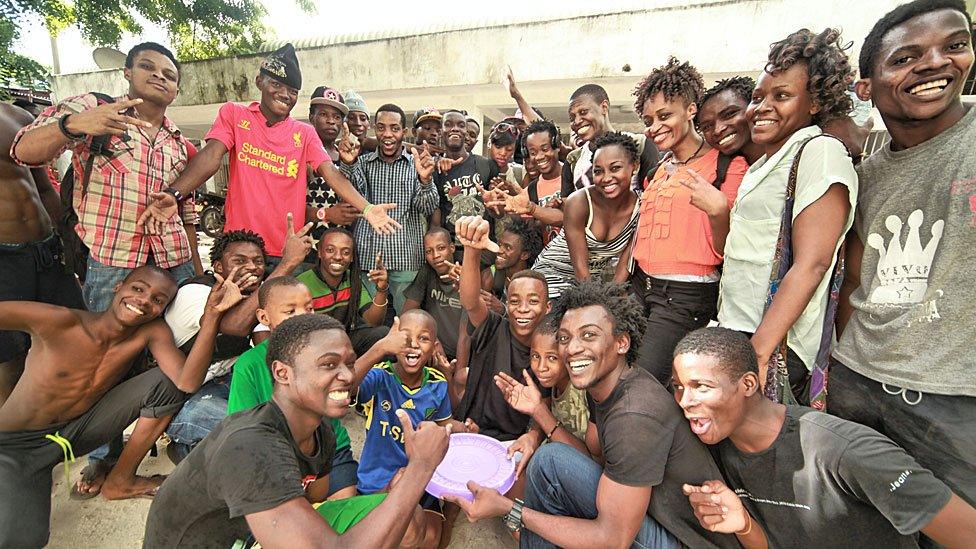
He adds: "The big difference between performers here and in other parts of the world is that here people enjoy what they do. We may not be as skilful and technical as the Chinese or Russian acrobats but we have a positive energy that really connects with audiences."
- Published15 November 2018